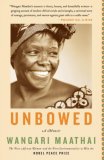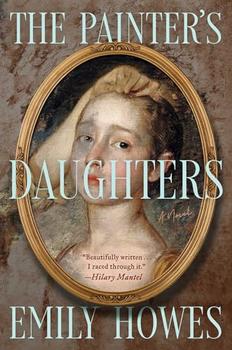Summary | Excerpt | Reading Guide | Reviews | Beyond the Book | Readalikes | Genres & Themes | Author Bio

Critics' Opinion:
Readers' Opinion:
First Published:
Oct 2006, 352 pages
Paperback:
Sep 2007, 352 pages
 Book Reviewed by:
Book Reviewed by:
BookBrowse Review Team
Buy This Book
Beginnings
I was born the third of six children, and the first girl after two sons, on April 1, 1940, in the small village of Ihithe in the central highlands of what was then British Kenya. My grandparents and parents were also born in this region near the provincial capital of Nyeri, in the foothills of the Aberdare Mountain Range. To the north, jutting into the sky, is Mount Kenya.
Two weeks into mbura ya njahi, the season of the long rains, my mother delivered me at home in a traditional mud-walled house with no electricity or running water. She was assisted by a local midwife as well as women family members and friends. My parents were peasant farmers, members of the Kikuyu community, one of forty-two ethnic groups in Kenya and then, as now, the most populous. They lived from the soil and also kept cattle, goats, and sheep.
At the time of my birth, the land around Ihithe was still lush, green, and fertile. The seasons were so regular that you could almost predict that the long, monsoon rains would start falling in mid-March. In July you knew it would be so foggy you would not be able to see ten feet in front of you, and so cold in the morning that the grass would be silvery-white with frost. In Kikuyu, July is known as mworia nyoni, the month when birds rot, because birds would freeze to death and fall from the trees.
We lived in a land abundant with shrubs, creepers, ferns, and trees, like the mitundu, mukeu, and migumo, some of which produced berries and nuts. Because rain fell regularly and reliably, clean drinking water was everywhere. There were large well-watered fields of maize, beans, wheat, and vegetables. Hunger was virtually unknown. The soil was rich, dark red-brown, and moist.
When a baby joined the community, a beautiful and practical ritual followed that introduced the infant to the land of the ancestors and conserved a world of plenty and good that came from that soil. Shortly after the child was born, a few of the women attending the birth would go to their farms and harvest a bunch of bananas, full, green, and whole. If any of the bananas had ripened and birds had eaten them, the women would have to find another full bunch. The fullness expressed wholeness and wellness, qualities the community valued. Along with the bananas, the women would bring to the new mother’s house sweet potatoes from her and their gardens and blue-purple sugarcane (kigwa kia nyamuiru). No ordinary sugarcane would do.
In anticipation of the birth, the expectant mother would fatten a lamb that slept and ate inside her home. While the women were gathered the ritual foods, the child’s father would sacrifice the lamb and roast a piece of the flesh. The bananas and the potatoes would also be roasted and along with the meat and the raw sugarcane given to the new mother. She would chew small pieces of each in turn and then put some of the juice into the baby’s tiny mouth. This would have been my first meal. Even before breast milk, I would have swallowed the juice of green bananas, blue-purple sugarcane, sweet potatoes, and a fattened lamb, all fruits of the local land. I am as much a child of my native soil as I am of my father, Muta Njugi, and my mother, Wanjiru Kibicho, who was more familiarly known by her Christian name, Lydia. Following the Kikuyu tradition, my parents named me for my father’s mother, Wangari, an old Kikuyu name.
According to the Kikuyu myth of origin, God created the primordial parents, Gikuyu and Mumbi, and from Mount Kenya showed them the land on which they were to settle: west from Mount Kenya to the Aberdares, on to Ngong Hills and Kilimambogo, then north to Garbatula. Together, Gikuyu and Mumbi had ten daughters—Wanjiru, Wambui, Wangari, Wanjiku, Wangui, Wangeci, Wanjeri, Nyambura, Wairimu, and Wamuyu—but they had no sons. The legend goes that, when the time came for the daughters to marry, Gikuyu prayed to God under a holy fig tree, mËœugumo, as was his tradition, to send him sons-in-law. God told him to instruct nine of his daughters—the tenth was too young to be married—to go into the forest and to each cut a stick as long as she was tall. When the daughters returned, Gikuyu took the sticks and with them built an altar under the migumo tree, on which he sacrificed a lamb. As the fire was consuming the lamb’s body, nine men appeared and walked out of the flames.
Excerpted from Unbowed by Wangari Maathai Copyright © 2006 by Wangari Maathai. Excerpted by permission of Knopf, a division of Random House, Inc. All rights reserved. No part of this excerpt may be reproduced or reprinted without permission in writing from the publisher




The low brow and the high brow
Click Here to find out who said this, as well as discovering other famous literary quotes!
Your guide toexceptional books
BookBrowse seeks out and recommends the best in contemporary fiction and nonfiction—books that not only engage and entertain but also deepen our understanding of ourselves and the world around us.